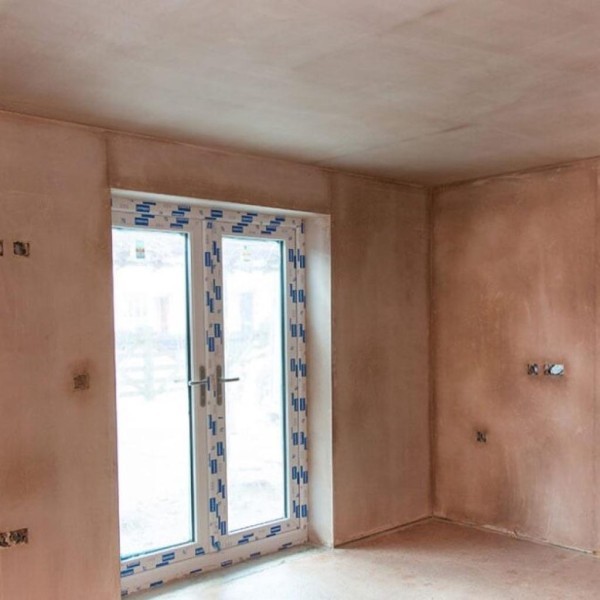Tiling Contractors/Tilers in Newmarket
Filter your search
Post your job FREE and let trades come to you
Save time by filling out our simple job post form today and your job will be sent to trades in your area so you can sit back, relax and wait for available trades to contact you.
Post your job FREESearch Tiling Contractors/Tilers in places nearby
Introduction to Tiling Contractors in Suffolk
When it comes to home improvement, tiling is one of those tasks that can truly transform a space. Whether you're looking to update your kitchen, bathroom, or any other area, finding the right tiling contractors in Suffolk is essential. These professionals bring expertise, precision, and creativity to every project, ensuring your tiles are not only functional but also aesthetically pleasing.
The Role of Tiling Contractors
Tiling contractors, often referred to as tilers, are skilled tradespeople who specialise in laying tiles on floors, walls, and other surfaces. Their work involves careful planning, precise measurements, and a keen eye for detail. In Suffolk, these professionals are known for their ability to handle a variety of materials, including ceramic, porcelain, stone, and glass tiles.
Why Hire a Professional Tiler?
While DIY projects can be rewarding, tiling is a task best left to the experts. Professional tilers have the experience and tools necessary to ensure a flawless finish. They can handle complex patterns, intricate designs, and challenging spaces with ease. Moreover, hiring a professional can save you time and money in the long run, as they can prevent costly mistakes and ensure the longevity of your tiles.
Choosing the Right Tiling Contractor in Suffolk
With so many tiling contractors available, selecting the right one can be daunting. However, by considering a few key factors, you can make an informed decision that meets your needs and budget.
Experience and Expertise
When evaluating potential tilers, experience is a crucial factor. Look for contractors who have been in the business for several years and have a portfolio of completed projects. Experienced tilers are more likely to have encountered a variety of challenges and developed effective solutions.
Certifications and Training
In addition to experience, consider the contractor's certifications and training. Many reputable tilers in Suffolk have undergone formal training and hold certifications from recognised industry bodies. These credentials demonstrate a commitment to quality and professionalism.
Customer Reviews and Testimonials
Customer feedback is an invaluable resource when choosing a tiling contractor. Look for reviews and testimonials from previous clients to gauge the contractor's reliability, workmanship, and customer service. Positive reviews can provide peace of mind, while negative feedback can highlight potential red flags.
Portfolio of Past Work
A contractor's portfolio is a visual testament to their skills and style. Reviewing past projects can give you an idea of the quality of their work and whether their aesthetic aligns with your vision. Don't hesitate to ask for references or visit completed projects if possible.
Understanding Tiling Costs in Suffolk
Budgeting for a tiling project involves understanding the various costs associated with the work. While prices can vary based on factors such as materials, complexity, and location, having a general idea of what to expect can help you plan accordingly.
Factors Influencing Tiling Costs
Several factors can affect the cost of tiling services in Suffolk. These include the type of tiles chosen, the size of the area to be tiled, and the complexity of the design. Additionally, labour costs can vary depending on the contractor's experience and reputation.
Material Costs
The type of tile you choose will significantly impact the overall cost of your project. Ceramic tiles are generally more affordable, while natural stone and custom designs can be more expensive. It's important to balance your budget with your desired aesthetic and durability.
Labour Costs
Labour costs are another significant component of tiling expenses. These costs can vary based on the contractor's expertise and the project's complexity. While it may be tempting to choose the cheapest option, investing in a skilled tiler can ensure a high-quality finish and prevent future issues.
Additional Expenses
In addition to materials and labour, there may be other expenses to consider, such as removal of old tiles, surface preparation, and sealing. Be sure to discuss these potential costs with your contractor to avoid surprises.
Types of Tiles Used by Suffolk Tilers
Tiling contractors in Suffolk work with a wide range of materials, each offering unique benefits and aesthetic qualities. Understanding the different types of tiles can help you make an informed decision for your project.
Ceramic Tiles
Ceramic tiles are a popular choice due to their affordability, versatility, and ease of maintenance. They come in a variety of colours, patterns, and finishes, making them suitable for both traditional and contemporary designs.
Porcelain Tiles
Porcelain tiles are known for their durability and resistance to moisture, making them ideal for high-traffic areas and wet environments. They are available in a range of styles, including those that mimic natural stone or wood.
Natural Stone Tiles
Natural stone tiles, such as marble, granite, and slate, offer a timeless and luxurious look. Each piece is unique, adding character and elegance to any space. However, they require more maintenance and can be more expensive than other options.
Glass Tiles
Glass tiles are often used as accents or in mosaic designs. They reflect light beautifully, adding a touch of sparkle and sophistication. While they can be more challenging to install, the results are often stunning.
Common Tiling Patterns and Designs
The pattern and design of your tiles can significantly impact the overall look of your space. Tiling contractors in Suffolk are skilled in a variety of patterns, each offering a unique aesthetic.
Herringbone Pattern
The herringbone pattern is a classic choice that adds visual interest and texture. It involves laying rectangular tiles in a zigzag pattern, creating a sense of movement and elegance.
Subway Tile Layout
Subway tiles are a timeless option, often used in kitchens and bathrooms. They are typically laid in a brick pattern, offering a clean and simple look that complements a variety of styles.
Chevron Pattern
Similar to herringbone, the chevron pattern involves angled tiles that meet in a point, creating a continuous zigzag. This pattern is bold and dynamic, perfect for making a statement.
Basket Weave Design
The basket weave design uses rectangular tiles to create a woven effect. This pattern adds depth and texture, making it a popular choice for floors and backsplashes.
Preparing for a Tiling Project
Proper preparation is key to a successful tiling project. By taking the time to plan and prepare, you can ensure a smooth process and a beautiful result.
Assessing the Space
Before beginning a tiling project, it's important to assess the space and determine any potential challenges. Consider factors such as the size and shape of the area, existing surfaces, and any fixtures or fittings that may need to be accommodated.
Choosing the Right Tiles
Selecting the right tiles involves considering both aesthetics and functionality. Think about the style you want to achieve, as well as the practical requirements of the space, such as slip resistance and durability.
Budgeting and Planning
Creating a budget and timeline for your project can help you stay organised and avoid unexpected expenses. Discuss your budget with your contractor and ensure all costs are accounted for, including materials, labour, and any additional expenses.
Hiring a Tiling Contractor
Once you've planned your project, it's time to hire a tiling contractor. Take the time to research and interview potential candidates, ensuring they have the experience and skills necessary to bring your vision to life.
Maintaining Your Tiled Surfaces
Proper maintenance is essential to keep your tiled surfaces looking their best. With the right care, your tiles can remain beautiful and functional for years to come.
Regular Cleaning
Regular cleaning is key to maintaining the appearance of your tiles. Use a mild detergent and a soft cloth or mop to remove dirt and grime. Avoid harsh chemicals and abrasive tools, as these can damage the surface.
Sealing and Protecting
Some types of tiles, particularly natural stone, may require sealing to protect against stains and moisture. Consult with your tiling contractor to determine if sealing is necessary and how often it should be done.
Repairing Damaged Tiles
If a tile becomes chipped or cracked, it's important to address the issue promptly to prevent further damage. In many cases, individual tiles can be replaced without affecting the surrounding area.
Preventing Common Issues
To prevent common issues such as mould and mildew, ensure your tiled surfaces are well-ventilated and dry. Use mats or rugs in high-traffic areas to protect against wear and tear.
Frequently Asked Questions
- What qualifications should I look for in a tiling contractor? Look for contractors with formal training, certifications, and a strong portfolio of past work.
- How long does a typical tiling project take? The duration of a tiling project can vary based on the size and complexity of the job. Discuss timelines with your contractor for a more accurate estimate.
- Can I install tiles over existing tiles? In some cases, tiles can be installed over existing ones, but it's important to assess the condition of the current tiles and consult with a professional.
- What is the best way to clean grout? Use a mixture of baking soda and water or a specialised grout cleaner to remove stains and keep grout looking fresh.
- How often should tiles be sealed? The frequency of sealing depends on the type of tile and the level of use. Consult with your contractor for specific recommendations.
- Are there eco-friendly tile options available? Yes, there are eco-friendly tiles made from recycled materials or sustainable sources. Discuss these options with your contractor if environmental impact is a concern.








